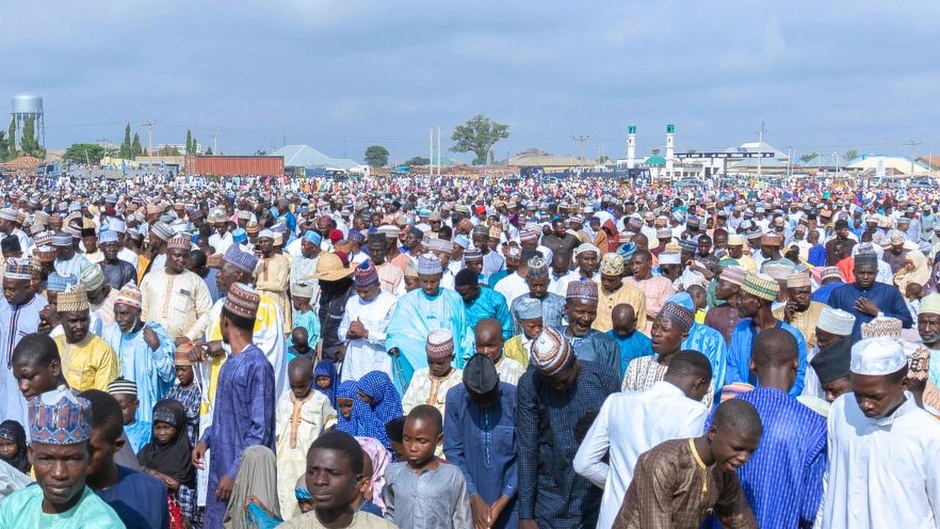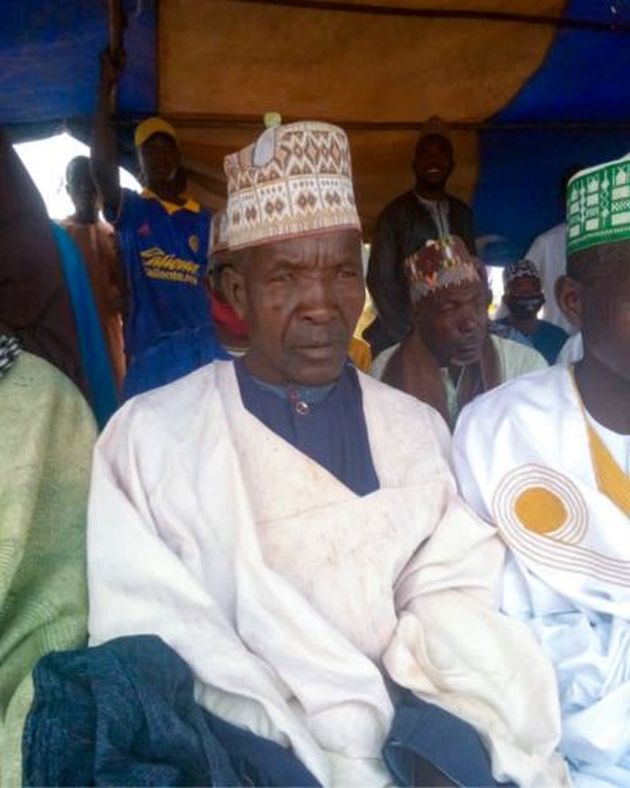Reach the last: Hausa people find ‘a faith worth dying for’
TWR broadcasts more than 12 hours of programming a week in the Hausa language from its 150,000-watt Oasis Transmitter.
28 MAY 2024 · 12:30 CET

In Hausaland, choosing to follow Jesus is a life-or-death matter.
“If you accept Jesus to be your personal Lord and Savior, you believe your faith is worth dying for,” said Canon Lazarus Bitrus, a Hausa Christian in northern Nigeria. “You expect to die for it.”
Yet the Word of God is being proclaimed through TWR in Hausaland, and Hausa people are responding.
“Please, how can I become a Christian?” a Nigerian listener to Christ to the World in the Hausa language wrote via social media in March 2023. “The teachings are so real. I see truth and hope in this way of life.”
Hausaland isn’t a country, or a state, or a province. It’s the historic designation for a large region of current-day northern Nigeria in which the Hausa people predominate.
Hausaland is not a country, or a state, or a province. It is the historic designation for a large region of current day northern Nigeria
Although the Hausa are spread across 16 countries in all, 38 million of the 55.4 million total Hausa population call Nigeria home, mostly in the north.Those living in Nigeria are in, by far, the most dangerous country in the world in which to be a Christian.
According to Open Doors, an agency that documents persecution, more Christians are killed for their faith annually in Nigeria than in all other countries combined.
Serious faith
The persecution in northern Nigeria means that those who choose to follow Christ are serious about their faith, said Joshua Irondi, director of TWR Nigeria.
“Anybody who still decides to be a Christian, I believe they really stand strong, more than in the eastern or southern part of the country, because they know the consequences,” Irondi said.
In northern Nigeria those who choose to follow Christ are serious about their faith, said Joshua Irondi, director of TWR Nigeria
TWR broadcasts more than 12 hours of programming a week in the Hausa language from its 150,000-watt Oasis Transmitter.There’s anecdotal evidence that Hausa people are hearing the programming and are either choosing to follow Jesus or at least asking questions.
What follows are just a few among many responses from listeners to Hausa-language programs, all received from Nigeria in 2023:
-
I am following your Bible teachings logically. If I want to become a Christian, what can I do? I will call you also for some questions because my people will not allow me to stay with them as a Christian. – phone call, listener to Thru the Bible.
-
I am a Muslim, and I want to know more about Jesus. I am happy to hear your Bible teachings and will keep on contacting you for some details. – text, listener to Thru the Bible.
-
We wish to let you know that a listener to your radio program came to us and gave his life to Christ. We are arranging now to take him through discipleship. – social network, listener to Christ to the World.

The dangers
Joshua Project counts people groups whose Christian population is less than 2% as unreached, reasoning that at that level indigenous believers lack the numbers and resources to evangelize their own group without outside help. By that measure, the Hausa certainly are unreached.
But Ambassador J.D. Jydson, a Hausa Christian who founded the Hausa Christian Foundation in northern Nigeria, argues that Joshua Project is significantly undercounting the number of Hausa Christians.
“I can take you to a place [in Hausaland] where you can travel more than 50 kilometers (31 miles) [and] you can count nothing less than 50 churches, but you cannot see one single mosque,” said Jydson, whose church uses the honorific title “ambassador.”
Jydson doesn’t profess to know the exact number of Hausa Christians, but he said he believes it’s about 30% of the population.
Whatever their population, Hausa Christians face life-threatening challenges.
“Churches have been attacked, pastors kidnapped,” Jydson said. “Communities have been displaced, [their people] killed.”
Kichime Bulus, also a Hausa Christian, affirmed that “We are all surrounded by danger,” Bulus said. “People are kidnapped, people are killed, houses burned, churches burned.”
“We are all surrounded by danger, people are kidnapped and killed, houses and churches burned”
Just in the first weeks of January of this year, 100 Christians – not necessarily all Hausa – were kidnapped in Nigeria, according to Release International, an English company that speaks on behalf of persecuted believers.One of the tools used against Nigerian Christians is the abduction of their girls. That got the world’s attention 10 years ago, when 276 girls were abducted from their school in the town of Chibok. The world’s interest has waned, but the abductions haven’t stopped.
It is against this backdrop that TWR brings hope to the Hausa.
“Some people are afraid to go to church [thinking] they may bomb the church if we go to worship,” Irondi said.
But that’s where radio comes in. “If they are afraid to go to church, they can still tune in to our stations and hear the Word of God.”
Hausa Christians are sharing that Word creatively, Irondi said. “Some of them, for fear of attack – people are attacking them – they enter into their premises … They lock the gate and then tune the equipment to the highest volume. So, passers-by on the road hear the messages. They are not seeing the people.”
God at work
TWR broadcasts nine programs in the Hausa language, including The Prophets, The Way of Righteousness and locally generated programs.
That’s not the end of it.
“We are preparing another program called My Story With God, which is a program of testimonies from Muslim-believer backgrounds,” said the Rev. Abdoulaye Sangho, West Africa director for TWR.
When the Hausa hear the Word of God, they become inquisitive.
“So, I believe the Spirit of God is working,” he said. “We need prayers – seriously, because when the Spirit of God works it opens up the hearts of these people.”
John Lundy, writer and editor for TWR.
Published in: Evangelical Focus - Radio, Media & Missions - Reach the last: Hausa people find ‘a faith worth dying for’
